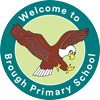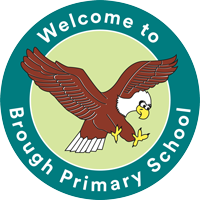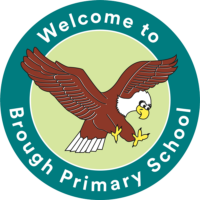At Brough Primary School we support all our children to enable them to achieve at school.
Excellent teaching is vital and high-quality learning experiences provide children with the opportunity to learn new skills, acquire knowledge, develop their independence and a love of learning. We pride ourselves on our inclusive ethos where the needs of individual learners are at the centre of their provision. We are committed to meeting the needs of every child and have experience of successfully catering for pupils with a wide range of special educational needs or disabilities.
We believe we are an effective, inclusive school and adapt to meet the learning needs of all children and strive for all children to reach their potential. Our skilled teachers and Teaching Assistants aim to meet the needs of all children in the classroom through Quality First Teaching.
We recognise that there are occasions where further additional support may be needed to enable our children to reach their goals. We work hard to identify children with difficulties from an early stage in their education believing that initial difficulties may be quickly addressed. We believe that the younger a child is identified, the better the outcome for that child as it enables some children to catch up with their classmates and gives support early to those who have greater difficulties. We work in close partnership with parents/carers and other agencies to provide the most appropriate support.
We maintain a register of children with Special Educational Needs which helps to ensure children receive the appropriate level of support.
The categories on our SEN register are:
School Support (K) – Children who need additional support that involves seeking advice from external agencies outside the school for example: Speech and Language Therapists, Educational Psychologists, Sensory and Physical Therapists, Behaviour Support Team.
Education Health Care Plan (EHCP) – Some children will have special needs which require a higher level of support or adult expertise to manage and it may be necessary to apply for an Education Health Care Plan. This would ensure that we are meeting the child’s specific needs and that all agencies involved with the child have an input.
The process of identifying that a child might need additional support within school or specialist advice from an outside agency will involve a conversation between school and parents/carers at the earliest opportunity. This makes sure that parents and carers are always consulted at every step and kept fully informed about the help their child is given and the results of that help given.
If your child is on the Special Needs Register, you will be informed and will be invited into school to discuss your child’s learning needs. Each child will have a One Page Profile and a Support Plan. These give details of specific targets your child is working towards and how we can work in partnership, to help your child achieve these targets. You will also be invited to talk about how your child is doing – what is working and what we might need to do differently. This meeting is in addition to our Parents’ Evenings. Having these review meetings gives parents/carers an opportunity to talk in greater detail about the support that is in place for their child and to ask questions to give us information in a friendly, unhurried situation.
At Brough Primary School we know that all parents and carers want the best for their children and hope they will be happy and achieve their potential at school. We believe that success in education for our children depends, at least in some part, on how parents, carers and school work together and this is particularly important when the child has an additional need. Parents and carers know their children best and we want to take into account their views and experience to increase the effectiveness of any provision put in place for their child.
Who can I contact for further information?
If you would like to discuss your child’s special educational needs, please contact the school office: 01482 667352 or email – brough.primary@eastriding.gov.uk or email our Special Educational Needs Co-ordinator Mrs Rozenbroek- arozenbroek@broughprimaryschool.co.uk
If you are considering sending your child to Brough Primary School please make an appointment to arrange a visit to our school, you will have the opportunity to discuss your child’s specific needs and to ask any questions relating to your child’s education.
For EYFS/Early years SEND information please contact our Early Years SEND leader- Mrs Skilleter via the school office: 01482 667352, email brough.primary@eastriding.gov.uk
SEND Local Offer and SEN Information report
The local offer and the SEND information report provides information for children and young people with special educational needs (SEND) and their parents or carers in a single place.
What is a local offer?
The local authority offer provides information on what services children, young people and their families can expect from a range of local agencies, including education, health and social care. Knowing what is out there gives you more choice and therefore more control over what support is right for your child.
The local authority provides information on a number of things, including:
- special educational provision;
- health provision;
- social care provision;
- other educational provision;
- training provision;
- travel arrangements for children and young people to schools, colleges and early years education; and
- preparing for adulthood, including housing, employment and leisure opportunity



